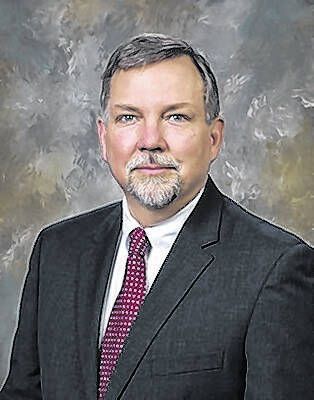Click here to subscribe today or Login.
Gov. Tom Wolf and the Department of Revenue this week announced that Pennsylvania collected $4 billion in General Fund revenue in December, which was $319.9 million, or 8.6%, more than anticipated.
Fiscal year-to-date General Fund collections total $19.7 billion, which is $503.1 million, or 2.6%, above estimate.
“Going into 2023, Pennsylvania is in a strong fiscal position,” said Gov. Wolf. “Year to date, we are 2.6 percent above our estimated revenue collections, which means we have $503.1 million in the bank above and beyond what we expected. That’s money that can be used to better support the people of Pennsylvania in the coming year, and I look forward to seeing what the new administration and the General Assembly will accomplish on behalf of Pennsylvanians.”
When Gov. Wolf took office, Pennsylvania was operating with a $2-3 billion budget deficit, and the Rainy Day Fund was a meager $231,800.
Pennsylvania ended the most recent fiscal year with $5.537 billion in the General Fund, and revenue collections for the 2022-23 fiscal year to date are 2.6% above estimate.
Additionally, Gov. Wolf has invested more than $5 billion dollars in the Rainy Day Fund.
“My goal has always been to build a strong foundation for Pennsylvania, so that our government can invest in the things that make Pennsylvanians’ lives better,” Wolf said. “That’s why I’m so proud of the historic $3.7 billion dollar investment I’ve made in education over the past eight years. The strong fiscal foundation that my administration has built will empower the next administration and the General Assembly to continue making life-changing investments in the people of Pennsylvania in the years to come.”
Revenue Secretary Dan Hassell said that it was only a couple years ago during the early months of the COVID-19 pandemic that Pennsylvania was facing a $3.2 billion shortfall at the close of the 2019-20 fiscal year.
“Fortunately, we are facing a much different situation today — and that is very much a testament to the strong fiscal management of Gov. Wolf,” Hassell said. “Pennsylvanians should be encouraged that we are on such solid financial footing as the governor closes out his term.”
The majority of the surplus in December is attributable to personal income tax revenue that was deposited on the first day of the month, rather than on the last day of November, as initially expected. Ultimately, this one-day shift of revenue had a minimal impact on overall General Fund collections.
Sales tax receipts totaled $1.2 billion for December, $2.3 million below estimate. Year-to-date sales tax collections total $7.1 billion, which is $134.8 million, or 1.9%, more than anticipated.
Personal income tax (PIT) revenue in December was $1.4 billion, $204.9 million above estimate. This brings year-to-date PIT collections to $7.5 billion, which is $27.1 million, or 0.4%, above estimate.
December corporation tax revenue of $1.0 billion was $116.3 million above estimate. Year-to-date corporation tax collections total $2.7 billion, which is $328.7 million, or 13.6%, above estimate.
Inheritance tax revenue for the month was $138.0 million, $6.1 million above estimate, bringing the year-to-date total to $725.7 million, which is $16.3 million, or 2.2%, below estimate.
Realty transfer tax revenue was $55.8 million for December, $23.3 million below estimate, bringing the fiscal-year total to $351.9 million, which is $26.7 million, or 7.1%, less than anticipated.
Other General Fund tax revenue, including cigarette, malt beverage, liquor and gaming taxes, totaled $174.2 million for the month, $5.1 million below estimate and bringing the year-to-date total to $939.6 million, which is $32.5 million, or 3.3%, below estimate.
Non-tax revenue totaled $55.5 million for the month, $23.3 million above estimate, bringing the year-to-date total to $346.7 million, which is $88.0 million, or 34%, above estimate.
In addition to the General Fund collections, the Motor License Fund received $203.0 million for the month, $8.2 million above estimate. Fiscal year-to-date collections for the fund – which include the commonly known gas and diesel taxes, as well as other license, fine and fee revenues — total $1.4 billion, which is $25.0 million, or 1.8%, above estimate.
Wolf seeks increased statute of limitations
for victims of childhood sexual abuse
Gov. Tom Wolf this week issued a proclamation calling for a special session of the General Assembly to be held on Monday, Jan. 9, to propose a constitutional amendment to retroactively extend the timeline for victims of childhood sexual abuse to file civil actions.
“For far too many Pennsylvanians, justice and healing for the pain they’ve experienced is out of reach,” said Gov. Wolf. “This special session is a critical step to allow the General Assembly to focus their work on this important, and potentially life-saving, task. No survivor should be denied the chance to hold their abuser accountable, regardless of how much time has passed.”
At the special session, the governor is calling on the General Assembly to complete the constitutionally required second passage of last session’s House Bill 14 to ensure that the voters have their say in this May’s election. The process was already restarted when they passed House Bill 14 last session.
The governor is asking the General Assembly to pass the joint resolution no later than Friday, Jan. 27. This very tight schedule can only be accomplished under the specific circumstances of a single, straightforward amendment to the Pennsylvania Constitution such as the one under consideration here. This time-frame will ensure the Department of State can meet the publication requirements so that Pennsylvania voters have the opportunity to consider the amendment in May.
“Now is the time to stand together and send a clear message: childhood sexual abuse will not be tolerated in our commonwealth and survivors will have the support they need to find justice,” added Gov. Wolf.
Labor & Industry helps return $8.5M
to workers wronged by employers in 2022
In 2022, the Pennsylvania Department of Labor & Industry (L&I) investigated more than 4,500 complaints of alleged labor law violations and returned more than $8.5 million in earned wages to Pennsylvania workers whose employers violated a labor law, according to data released this week by L&I Secretary Jennifer Berrier.
“Workers in Pennsylvania have the right to keep every cent they rightfully earn,” Berrier said. “The department’s Bureau of Labor Law Compliance holds employers accountable when they wrongfully deny workers their earned wages or when they violate any of Pennsylvania’s labor laws. From ensuring proper overtime wages are paid to protecting children from exploitative work, the bureau enforces 13 labor and employment laws that are essential to the protection and safety of every worker in the commonwealth.”
Most of the complaints investigated in 2022 and in recent years were relevant to the Wage Payment and Collection Law (WPCL), the Minimum Wage Act (MWA), the Prevailing Wage Act, (PWA), the Child Labor Act (CLA) and the Construction Workplace Misclassification Act (CWMA).
• Under the WPCL, the bureau investigates complaints filed by persons alleging nonpayment of wages, final paychecks or fringe benefits. In 2022, the bureau collected more than $6.6 million from about 1,200 employers in violation of the law and returned those dollars to workers, up from more than $2 million from about 900 employers in 2021.
• Under the MWA, the bureau investigates complaints alleging employers failed to pay minimum wage or overtime. In August 2022, the bureau also began enforcement of regulations largely affecting tipped employees. During all of 2022, the bureau collected $915,000 from 70 employers in violation of the law and returned those dollars to workers, up from $566,000 from 60 employers in 2021.
• Under the PWA, the bureau enforces requirements for prevailing wage rates on publicly funded construction projects. In 2022, the bureau determined more than 9,500 prevailing wage violations (up from 8,500 in 2021) and returned more than $1 million to workers who were not paid the proper prevailing wages on projects across the commonwealth.
• Under the CLA, the bureau investigates allegations of child employees engaged in prohibited occupations, working excessive hours, not receiving mandated break times, or working in dangerous conditions. In 2022, the bureau issued fines to more than 100 entities and collected $205,000 in child labor fines that were deposited into the general fund.
• Under the CWMA, the bureau investigates allegations of construction-industry employers misclassifying employees as independent contractors. In 2022, the bureau issued penalties to more than 125 construction-industry employers and collected$272,965 in fines. These funds are deposited into the commonwealth’s Unemployment Compensation Trust Fund.
Altogether in 2022, $8.5 million was returned to nearly 10,000 workers.
Reach Bill O’Boyle at 570-991-6118 or on Twitter @TLBillOBoyle.








